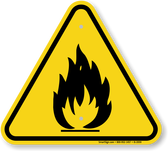
Attached Garage Fire Hazards
At Bennett Property Inspection, we’d like you to take measures to keep your garage free from fire. Fortunately, there are ways this can be done, some of which are described below. Secondly, garage fires do happen, and we’d like you to make sure that a fire cannot not easily spread to the rest of your house. While you can perform many of the recommendations in this article yourself, you can also consult with Bennett Property Inspection to make sure your home is safe from a garage fire.
Why do many garages pose a fire hazard?
The following tips can help prevent garage fires and their spread:
If there is a door that connects the garage to the living area, consider the following:
Concerning items placed on the floor, you should check for the following:
For questions concerning property inspections, or to schedule your property inspection, contact Bennett Property Inspection today at (813) 260-9920.
Article Source:InterNACHI
At Bennett Property Inspection, we’d like you to take measures to keep your garage free from fire. Fortunately, there are ways this can be done, some of which are described below. Secondly, garage fires do happen, and we’d like you to make sure that a fire cannot not easily spread to the rest of your house. While you can perform many of the recommendations in this article yourself, you can also consult with Bennett Property Inspection to make sure your home is safe from a garage fire.
Why do many garages pose a fire hazard?
- Where are you most likely to do any welding, or any work on your car? These activities require working with all sorts of flammable materials.
- Water heaters and boilers are usually stored in garages, and they can create sparks that may ignite fumes or fluids. Car batteries, too, will spark under certain conditions.
- Oil and gasoline can drip from cars. These fluids may collect unnoticed and eventually ignite, given the proper conditions.
- Flammable liquids, such as gasoline, motor oil and paint are commonly stored in garages. Some other examples are brake fluid, varnish, paint thinner and lighter fluid.
The following tips can help prevent garage fires and their spread:
- If the garage allows access to the attic, make sure a hatch covers this access.
- The walls and ceiling should be fire-rated. Unfortunately, it will be difficult for untrained homeowners to tell if their walls are Type X fire-rated gypsum. We can examine the walls and ceiling to make sure they are adequate fire barriers.
- The floor should be clear of clutter. Loose papers, matches, oily rags, and other potentially flammable items are extremely dangerous if they are strewn about the garage floor.
- Use light bulbs with the proper wattage, and do not overload electrical outlets.
- Tape down all cords and wires so they are not twisted or accidentally yanked.
If there is a door that connects the garage to the living area, consider the following:
- Do not install a pet door in the door! Flames can more easily spread into the living area through a pet door, especially if it’s made of plastic.
- Does the door have a window? We can inspect the window to tell if it's fire-rated.
- The door should be self-closing. While it may be inconvenient, especially while carrying groceries into the house from the car, doors should be self-closing. You never know when a fire will happen, and it would be unfortunate to accidentally leave the door open while a fire is starting in the garage.
- Check the joints and open spaces around the door. Are they tightly sealed? Any openings at all can allow dangerous fumes, such as carbon monoxide or gasoline vapor, to enter the living area. Bennett Property Inspection can recommend ways to seal the door so that fumes cannot enter the living area.
Concerning items placed on the floor, you should check for the following:
- Store your flammable liquids in clearly labeled, self-closing containers, and only in small amounts. Keep them away from heaters, appliances, pilot lights and other sources of heat or flame.
- Never store propane tanks indoors. If they catch fire, they can explode. Propane tanks are sturdy enough to be stored outdoors.
For questions concerning property inspections, or to schedule your property inspection, contact Bennett Property Inspection today at (813) 260-9920.
Article Source:InterNACHI

 RSS Feed
RSS Feed

